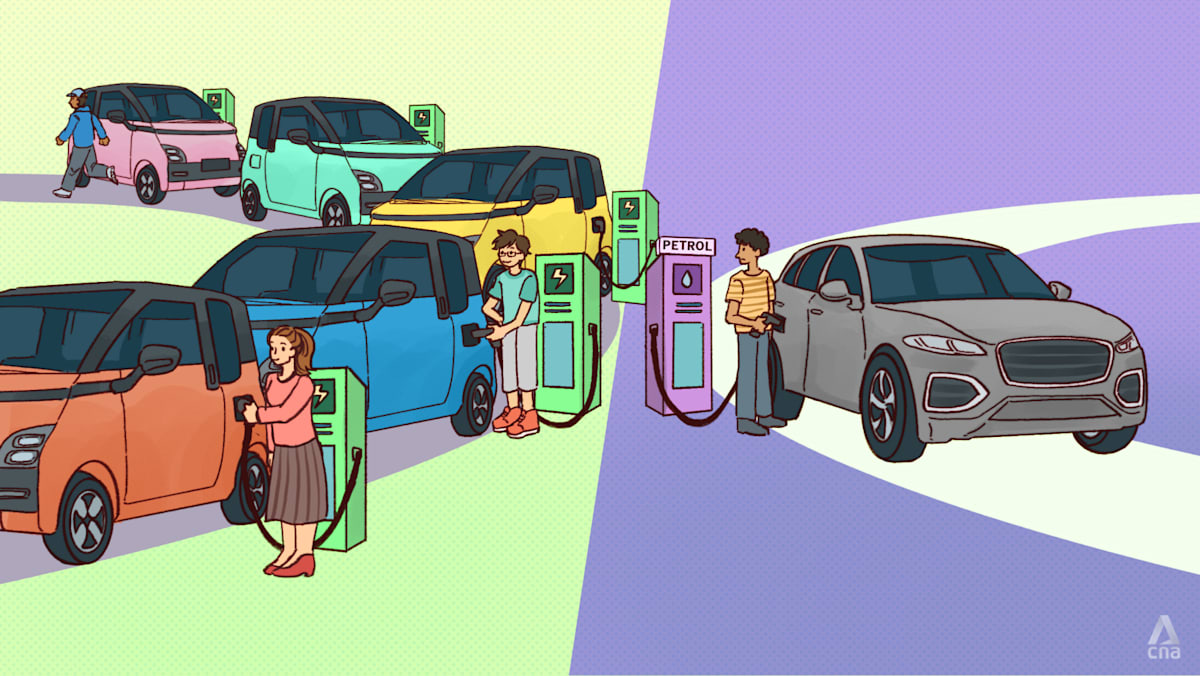The next natural question would then be – could the petrol stations be converted to fast-charging stations instead?
The expectation that all of them can be converted is unrealistic, said Prof Loh.
For one, there will be a change in how people charge their vehicles.
“Slowly, we will see a decentralisation of charging (where) progressively more sites are made available in residences, including public and private housing and work places,” he said.
This would, in turn, moderate demand for centralised charging facilities, he said.
Transport economist Walter Theseira said that the fast charging “petrol station” model is unlikely to “ever make much sense in Singapore”.
This is because it is cheaper for users to have the vast majority of their charging done using slow charging, which is supplied at the EV owner’s home car park and malls, among other places.
“Thus, with widespread slow charging, fast charging ‘petrol stations’ will simply be uneconomical for most users,” said Assoc Prof Theseira, who is from the Singapore University of Social Sciences’ School of Business.
Instead, it will be more applicable to commercial operators, such as private-hire drivers, who need to charge during the day because they may drive more than their battery capacity each day.
The conversion of the petrol station sites to other uses will also be challenging, according to one environmental expert.
Conservation ecologist Rachel Oh said that the process of decommissioning a petrol station involves a site assessment and pollution survey, followed by the removal of underground tanks and pipes, excavation of contaminated soil, and the soil’s subsequent treatment.
An incomplete decontamination of the land will eventually have “significantly adverse impacts on our health and economy”, said Dr Oh, who is a research assistant professor at the NUS Department of Geography.
For instance, toxic compounds can leach onto the soil and groundwater or even into the air in vapour form, and long-term exposure can lead to increased risk of chronic health conditions, such as respiratory and cardiovascular diseases.
If residual fuels are not properly managed, they can also become fire or explosion hazards.
“Contaminated sites (can) become costly and time-intensive barriers to redevelopment, as complex remediation is required before land can be safely repurposed for housing, community facilities or other uses,” said Dr Oh.
Responding to queries from CNA, an Urban Redevelopment Authority (URA) spokesperson said factors such as the growing adoption of EVs are taken into consideration when studying the adaptation of petrol station sites for alternative use.
“For example, many petrol station operators have proactively responded to EV trends and deployed EV chargers to provide charging services to EVs,” said the spokesperson.
URA added that relevant agencies will provide guidance on the necessary measures to ensure that petrol station sites are fit for their intended use.
